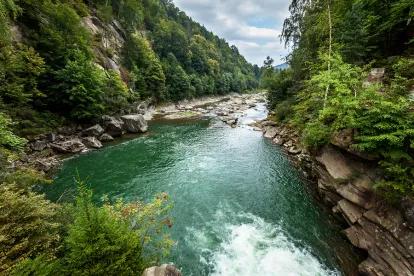As President Luiz Inácio Lula da Silva (Lula) reached his first six months in office, Brazil’s opposition-led Congress unleashed an important, yet unsurprising, setback on the new administration’s efforts to advance environmental protection, environmental justice, and tackle climate change. This alert covers how the government responded to it from a regulatory standpoint, including launching the National Council for the 30th Conference of the Parties (COP) of the United Nations Framework Convention on Climate Change (UNFCCC). The UN confirmed Brazil as the host of COP30, which will occur in the capital of Pará, one of the nine Brazilian states in the Amazon region, in 2025.
On June 1, Congress’s lower house, the Chamber of Deputies, approved Bill 490/07, limiting the recognition and demarcation of new indigenous territories. On the same day, the Senate - the upper house - passed Lula’s Provisional Measure 1154/23, from January 1, 2023, dealing with the federal government’s structural reorganization, but subtracted powers from the Ministry of Environment and Climate Change, Marina Silva, and Brazil´s first ever Ministry of Indigenous Peoples, Sônia Guajajara, named one of Time Magazine’s 100 most influential people in 2022.
The National Congress must ratify Provisional Measures within a maximum of six months – otherwise, they expire and lose their validity. However, the Senate ratified Provisional Measure 1154/23 with significant changes. It transferred indigenous land demarcation decisions from the Ministry of Indigenous Peoples back to the Justice Ministry and removed from Marina Silva's portfolio the management and control of the nation's water resources, and of the Rural Environmental Registry (CAR). CAR is a key tool used against deforestation as it informs how much of rural properties throughout the country are covered by forest, and has now passed to the Ministry of Management and Innovation in Public Services, headed by economist Esther Dweck. The National Water Agency (ANA) and the National Water Resource Management and Management System (SIGRH) were transferred to the Ministry of Integration and Regional Development.
On June 5, 2023, during a ceremony to celebrate World Environment Day, President Lula launched a series of measures to combat deforestation, including Phase 5 of the Action Plan for the Prevention and Control of Deforestation in the Legal Amazon (PPCDAm), which contains five new decrees in the climate area and two decrees for the expansion and creation of Conservation Units. Observers perceived the June 5 actions as the President’s attempt to mitigate and calm the animosity created by the congressional interference on its ministries’ environmental and climate powers.
Key Developments
Decree 11,546/2023: creates the National Council for the UNFCCC 30th Conference of the Parties (COP30), to be hosted by Brazil in 2025. World leaders gather annually at COPs to discuss solutions to control global warming and create sustainable alternatives for life on Earth. Brazil is the confirmed host of the UNFCCC COP30.
Decree 11,547/2023: creates the Low Carbon Industry Technical Committee, responsible for articulating efforts of environmental authorities and public and private entities to implement, monitor and revise public policies, initiatives, and projects seeking industry decarbonization.
Decree 11,548/2023: establishes the REDD+ National Commission for the Reduction of Greenhouse Gas Emissions from Deforestation and Forest Degradation, Conservation of Forest Carbon Stocks, Sustainable Management of Forests, and Increase of Forest Carbon Stocks. It updates the National Strategy for REDD+ and provides guidelines and requirements for accessing results-based payments under the UNFCCC.
Decree 11,549/2023: modifies Decree 9,578/2018, establishing the National Fund for Climate Change and the National Policy on Climate Change.
Decree 11,550/2023: provides for the permanent Climate Change Interministerial Committee, which aims to monitor the implementation of the Executive Power actions and public policies related to the National Policy on Climate Change.
Ministry of Agriculture and Livestock (MAPA)/SDI Ordinance 550/2023: initiates a 60-day public consultation for the draft proposal for the National Program on Decarbonized Agricultural Supply Chains – (Carbon + Green). The program provides for the granting of a seal of conformity (Carbon + Green Seal) for primary agricultural production chains, which will certify carbon credits originated by the agricultural sector.
IBAMA Normative Instruction 15/2023: regulates the embargo of areas with suppression of vegetation, forest exploitation, and irregular use of fire in Indigenous Lands and other public areas of the Legal Amazon.
IBAMA Normative Instruction 16/2023: establishes criteria for setting administrative fines for pesticides and related product violations.
Finally, as expected and reported here, the Chamber of Deputies approved and submitted the national chemical substances inventory and management Bill No. 6120/2019 draft to the Senate. We expect it to be approved and signed into law by the end of 2023.



 />i
/>i

